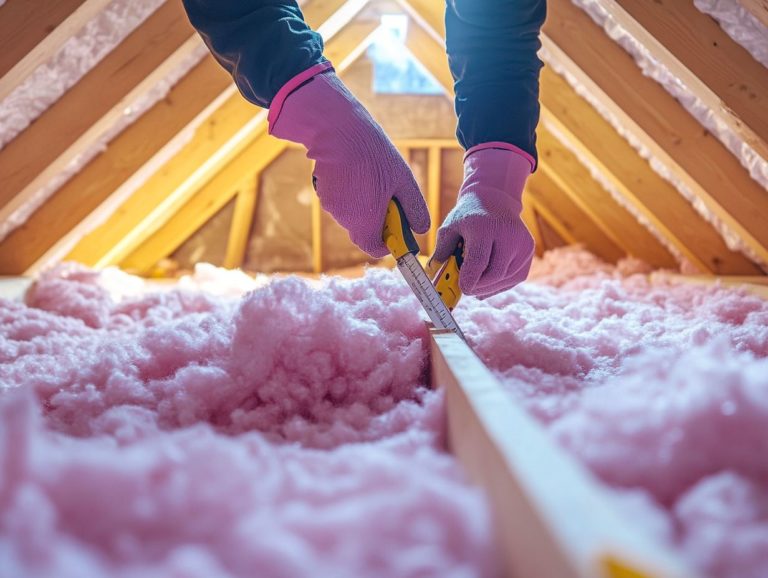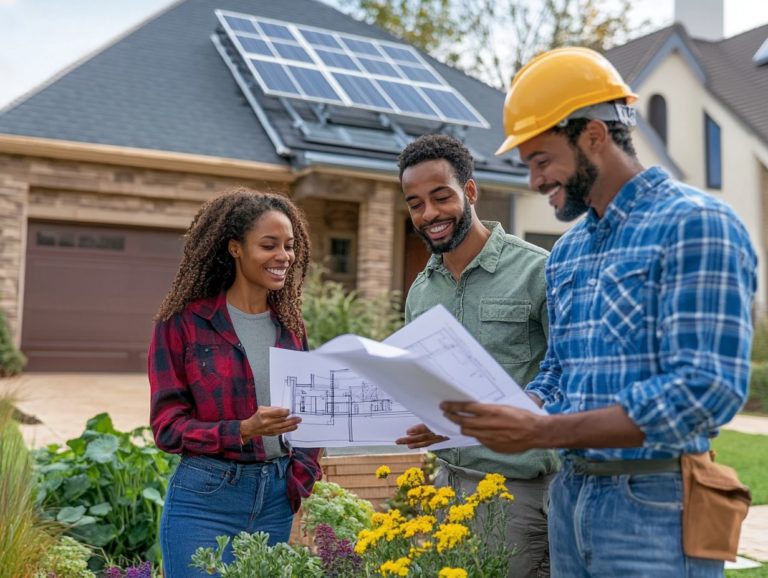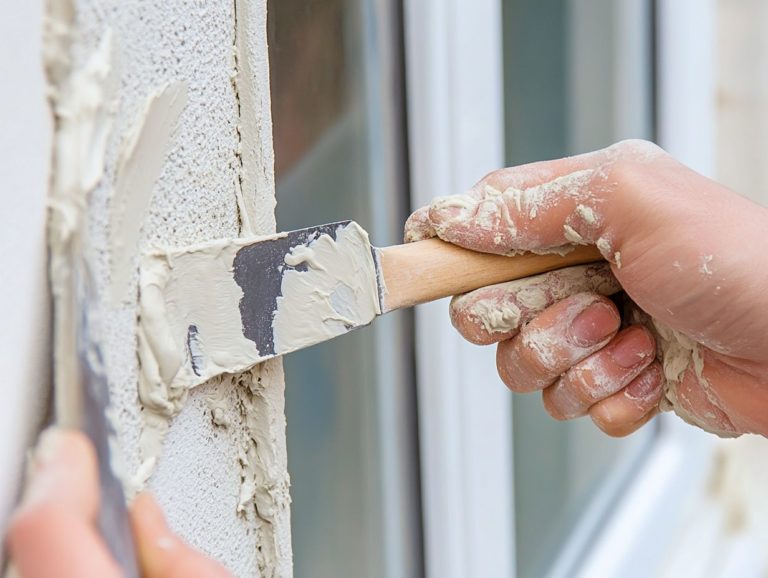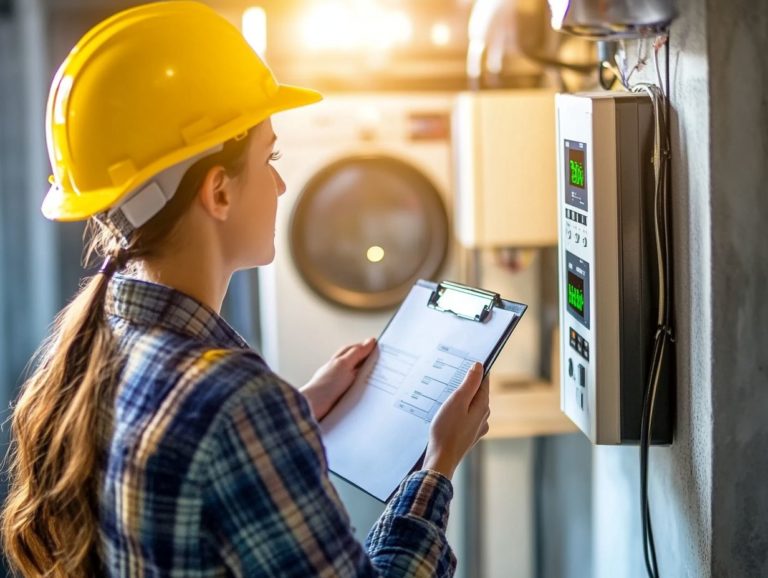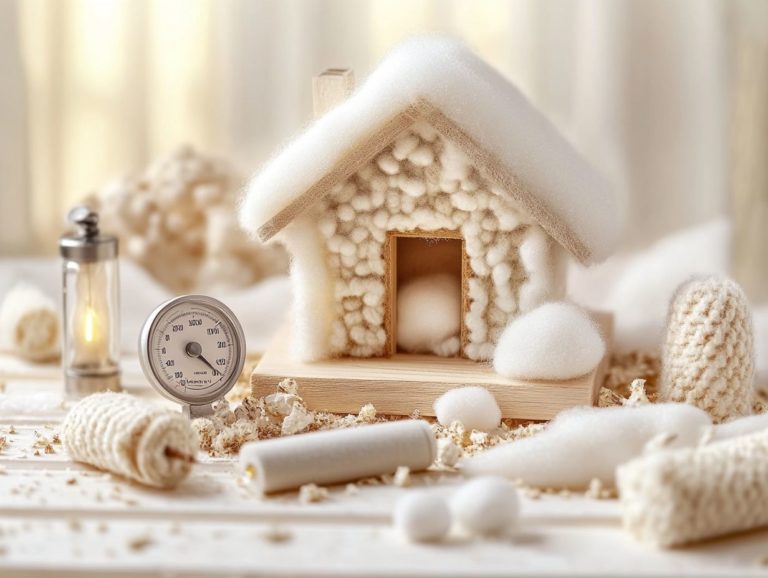How to Assess Your Water Usage?
Water is an invaluable resource, yet it often goes unappreciated in our daily lives. Understanding your water usage is crucial for conserving this essential supply and trimming down your utility bills.
This guide delves into the fundamentals of water consumption. It provides you with practical strategies to assess and reduce your usage. From calculating your daily consumption to pinpointing areas ripe for reduction, you ll uncover effective methods to conserve water and monitor your progress.
Let s dive into how even the smallest changes can yield significant results!
Contents
Key Takeaways:
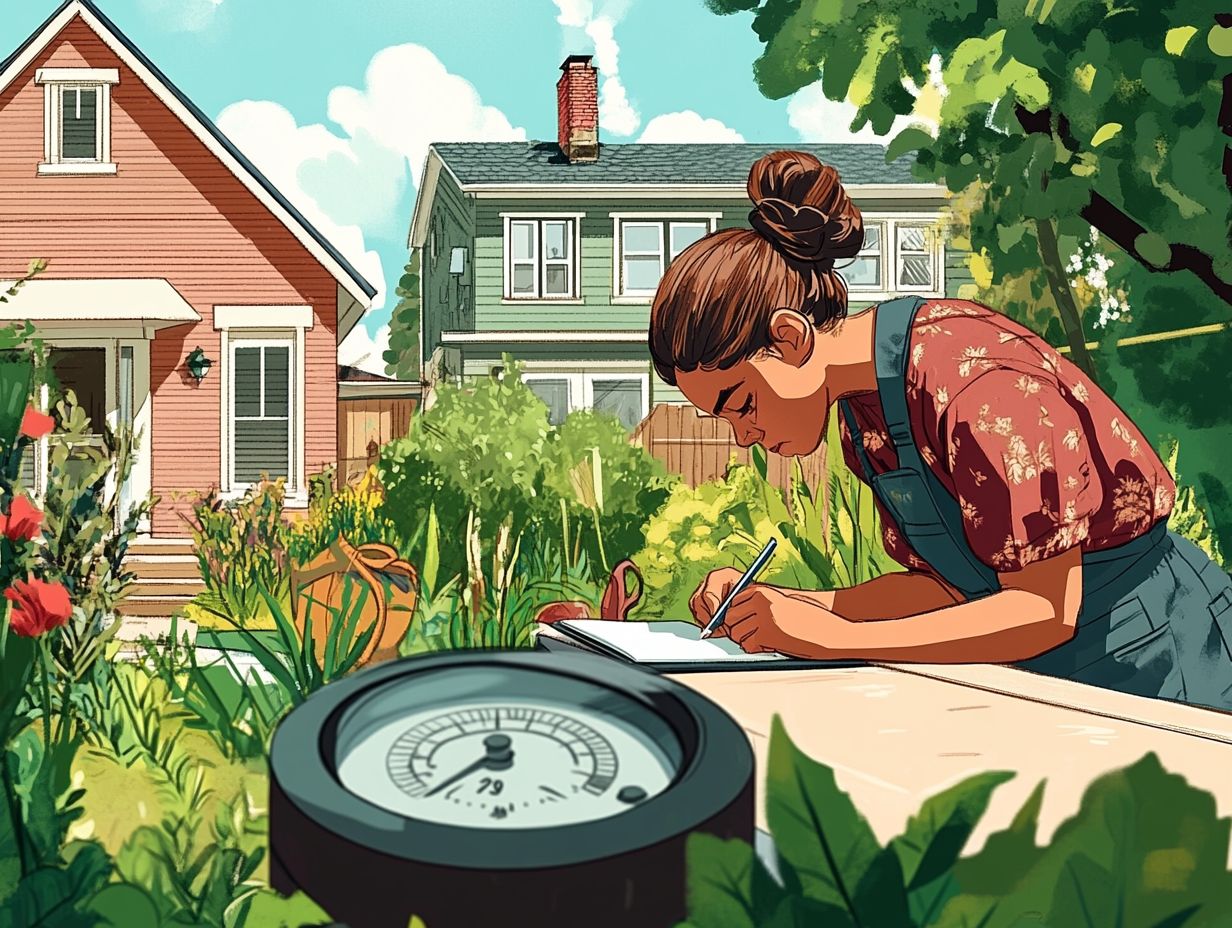
Regularly monitoring and tracking your water usage is crucial for reducing your overall consumption and identifying areas of high usage.
Simple conservation techniques, like fixing leaks and using efficient appliances and fixtures, can significantly reduce your water usage and save you money.
Calculating your water consumption and understanding its importance can help you make informed decisions and take action towards conserving this valuable resource.
Understanding Water Usage
Understanding water usage is essential for you and your community, particularly in areas like southwest Florida. Striking a balance between outdoor irrigation and water conservation is critical.
Managing your water use effectively contributes to the sustainability of local ecosystems while uncovering opportunities to save water.
By analyzing factors such as daily water consumption, household usage, and overall consumption patterns, you can make informed decisions that significantly reduce your water footprint.
This knowledge empowers you to optimize your irrigation cycles and adopt Florida-Friendly Landscaping practices. This enhances your outdoor spaces while preserving invaluable resources.
What is Water Usage and Why is it Important?
Water usage encompasses the total volume of water consumed for various purposes, including indoor domestic needs and outdoor irrigation. It is essential for both personal well-being and environmental health.
Understanding this idea allows you to strike a delicate balance between your daily necessities and the sustainability of natural resources. By keeping an eye on your indoor water consumption, you can pinpoint areas where conservation methods like fixing leaks or installing low-flow fixtures can truly make a difference.
An indoor water audit can help uncover inefficiencies that might lead to unnecessary wastage.
For outdoor water usage, adopting responsible irrigation practices, like drip systems and rainwater harvesting, nurtures healthier gardens while minimizing adverse effects on local ecosystems. Drip systems deliver water directly to plant roots, while rainwater harvesting collects rain for future use. This approach helps preserve biodiversity and safeguard precious water sources.
Assessing Your Water Usage
Assessing your water usage is a crucial step in the journey toward effective water conservation. By conducting a thorough water audit, you can pinpoint areas of high consumption and uncover opportunities for significant savings, including learning how to measure your home’s water efficiency.
This proactive approach enhances your awareness and enables you to make informed choices that benefit both your wallet and the environment.
Calculating Your Water Consumption
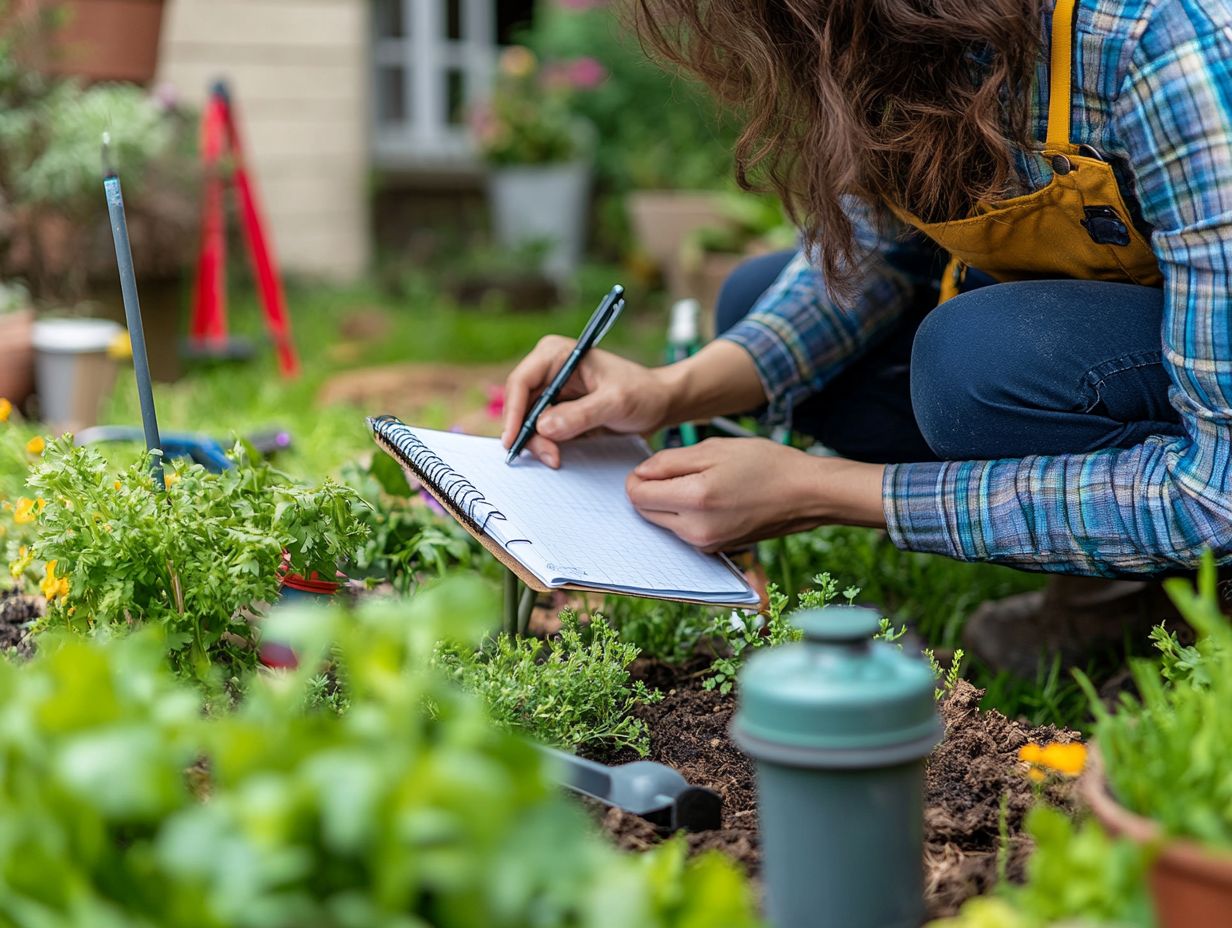
Calculating your water consumption starts with understanding how much water your household uses, measured in gallons per day. A water meter is an invaluable tool for tracking this information effectively.
To get started, note your latest meter reading and compare it to previous readings. This helps identify any changes in your consumption over time. Regularly reviewing these figures highlights usage patterns and allows you to evaluate how different activities contribute to your overall water use.
Next, convert your total gallons consumed into a dollar amount by multiplying your usage by the local water rate. This simple calculation provides significant insights into your water expenditures.
Consistent monitoring is essential. It enables you to adopt more effective water conservation strategies and make informed decisions to reduce both waste and costs.
Start your water audit today to discover how you can save!
Identifying Areas of High Usage
Identifying areas of high water usage is essential for effective water conservation. A comprehensive water check-up can pinpoint specific irrigation zones and consumption patterns.
By closely examining your household activities, you can uncover often-overlooked areas where water usage spikes. Think about your bathrooms: showers, toilets, and sinks can unexpectedly add up to significant amounts.
Kitchens also play a significant role. Dishwashing and food prep contribute considerably to your overall consumption. A thorough investigation highlights these hotspots and enables you to devise tailored strategies to tackle inefficiencies.
For example, switching to low-flow fixtures, scheduling irrigation for early mornings, and embracing drought-tolerant landscaping can significantly reduce water waste. Start your conservation journey today and watch your savings grow!
Ways to Reduce Water Usage
Reducing water usage is not just about environmental conservation; it’s a smart way to save money on your bills.
By employing various conservation techniques and investing in efficient appliances, you can achieve remarkable savings while contributing positively to the planet.
Conservation Techniques
Implementing effective conservation techniques is vital for managing water resources. Use rain sensors and adopt Florida-Friendly Landscaping practices to significantly reduce outdoor irrigation needs.
These strategies decrease water consumption and bolster the resilience of local ecosystems. Rainwater harvesting is collecting rainwater from your roof to use for watering plants or flushing toilets, creating a sustainable water supply that eases the burden on municipal systems.
Installing rain sensors ensures that your irrigation systems activate only when necessary, preventing overwatering. Embracing native landscaping allows you to cultivate drought-resistant plants that thrive on local rainfall, enhancing your water conservation efforts.
When individuals within a community collectively implement these techniques, they foster a culture of sustainability and responsibility toward our invaluable shared water resources.
Efficient Appliances and Fixtures
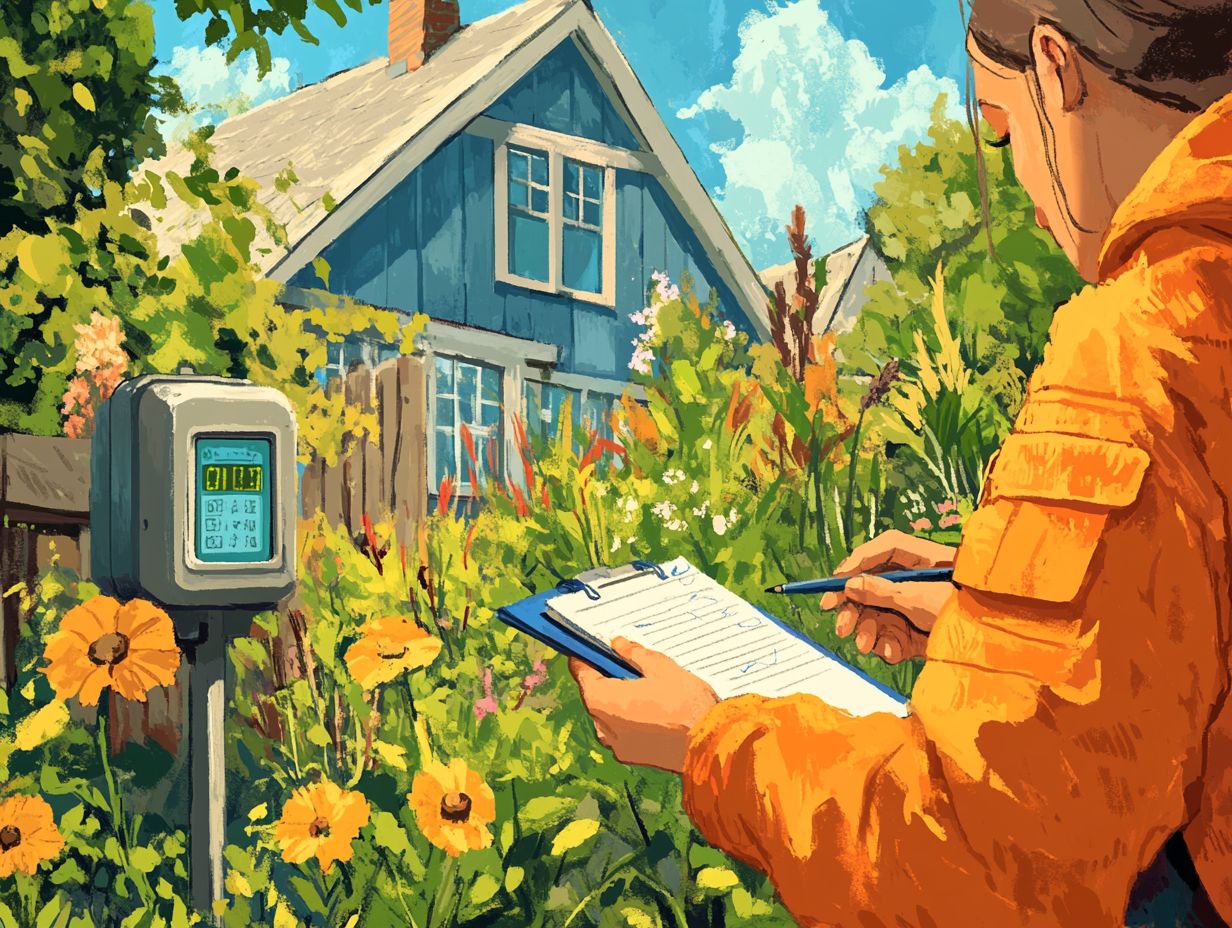
Investing in efficient appliances can save you a lot of water and money. This significantly reduces your household’s water consumption and energy use while providing cost-effective solutions to manage your budget.
Consider low-flow showerheads they can cut your water use in half without compromising comfort. You can enjoy a fulfilling shower experience while using up to 50% less water.
Dual-flush toilets are another smart choice. They have two buttons for different amounts of water used when flushing, enabling you to conserve water with every use. Smart irrigation systems can adjust their watering schedules based on real-time weather data, minimizing waste and keeping your garden thriving.
By conducting an indoor water audit, you can identify outdated fixtures that contribute to excessive water use. Replacing them with modern alternatives leads to lower water bills and a positive impact on the environment.
Monitoring and Tracking Your Water Usage
Monitoring and tracking your water usage is crucial for staying attuned to your consumption patterns. This practice enhances your awareness and fosters the development of effective water conservation strategies.
Utilize various established tools and methods to help you track your water usage effectively.
Tools and Methods for Tracking
Utilizing tools to track your water usage, like a water meter, enables you to obtain precise readings of your current and past consumption. This offers valuable insights into your overall water use and conservation strategies.
These tools range from traditional analog water meters to advanced smart water meters. Smart meters often come with mobile apps that alert you to unusual spikes in water usage, helping you quickly identify leaks or inefficiencies.
Regularly comparing past and current readings helps you make informed decisions about your water consumption. This practice promotes sustainable water use and can significantly lower your utility bills.
Whether you opt for a basic meter or a digital system, tracking your water usage has never been easier.
Frequently Asked Questions About Water Usage
What is the importance of assessing my water usage?
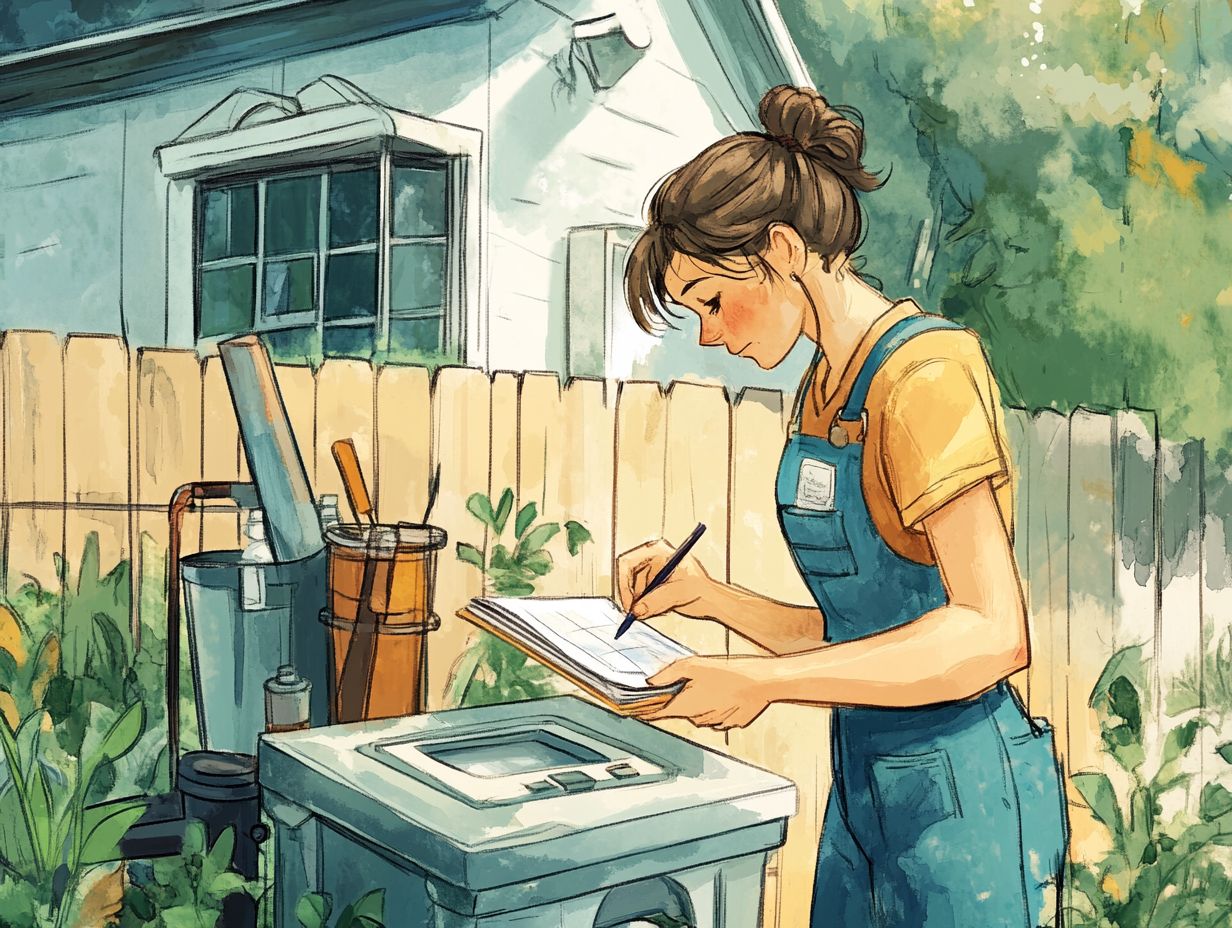
Assessing your water usage helps you understand how much water you use. It also shows how your habits affect your utility bills and provides insights on how to calculate your home’s water usage to conserve this vital resource.
How do I assess my water usage?
Start by tracking your water usage for a week. Monitor how much water you use for tasks like showering, doing laundry, and watering your lawn.
What are some tools I can use to assess my water usage?
You can use a water meter to measure the water used in your home. Alternatively, consider a water audit calculator, a tool that estimates water usage based on household size and daily activities.
What are some common causes of high water usage?
Leaky faucets, inefficient appliances, and excessive outdoor watering often lead to high water usage. Identifying and fixing these issues can significantly reduce your consumption.
How can I reduce my water usage?
Fixing leaks, upgrading to water-efficient appliances, taking shorter showers, and watering your lawn only when necessary can help you cut down on water use. Conserving water benefits the environment and saves you money.
Is it important to regularly assess my water usage?
Yes, regularly assessing your water usage helps track changes and identifies areas for further reduction. For the best results, learn how to monitor your water usage effectively and check your usage before and after making changes to your habits or appliances.
Don’t wait! Start tracking your water usage today to save money and protect our precious resources.

